-
-
-
-
Search
-
-
0
-
Shopping Cart
xProducts:0Cart Empty
-
by Francesco Medici and Glen Kalem-Habib – July 12, 2025 – All rights reserved. Copyright © 2025.
In the late spring of 1910, after a six-year period of solitude in his native mountains, Ameen Rihani (1876–1940) left Lebanon to return to New York (for the third time in his life). In June he made a stop in Paris, where he met with two fellow writers and artists, Kahlil Gibran (1883–1931) and Yusuf Huwayyik (1883–1962), who were both then attending the Académie Julian and sharing a small studio-apartment in Montparnasse at 14 avenue du Maine. During that month the three compatriots laid plans for nothing less than the cultural renaissance of the Arab world. The cornerstone of their program was reconciliation, to be symbolised by the construction of an opera house in Beirut. 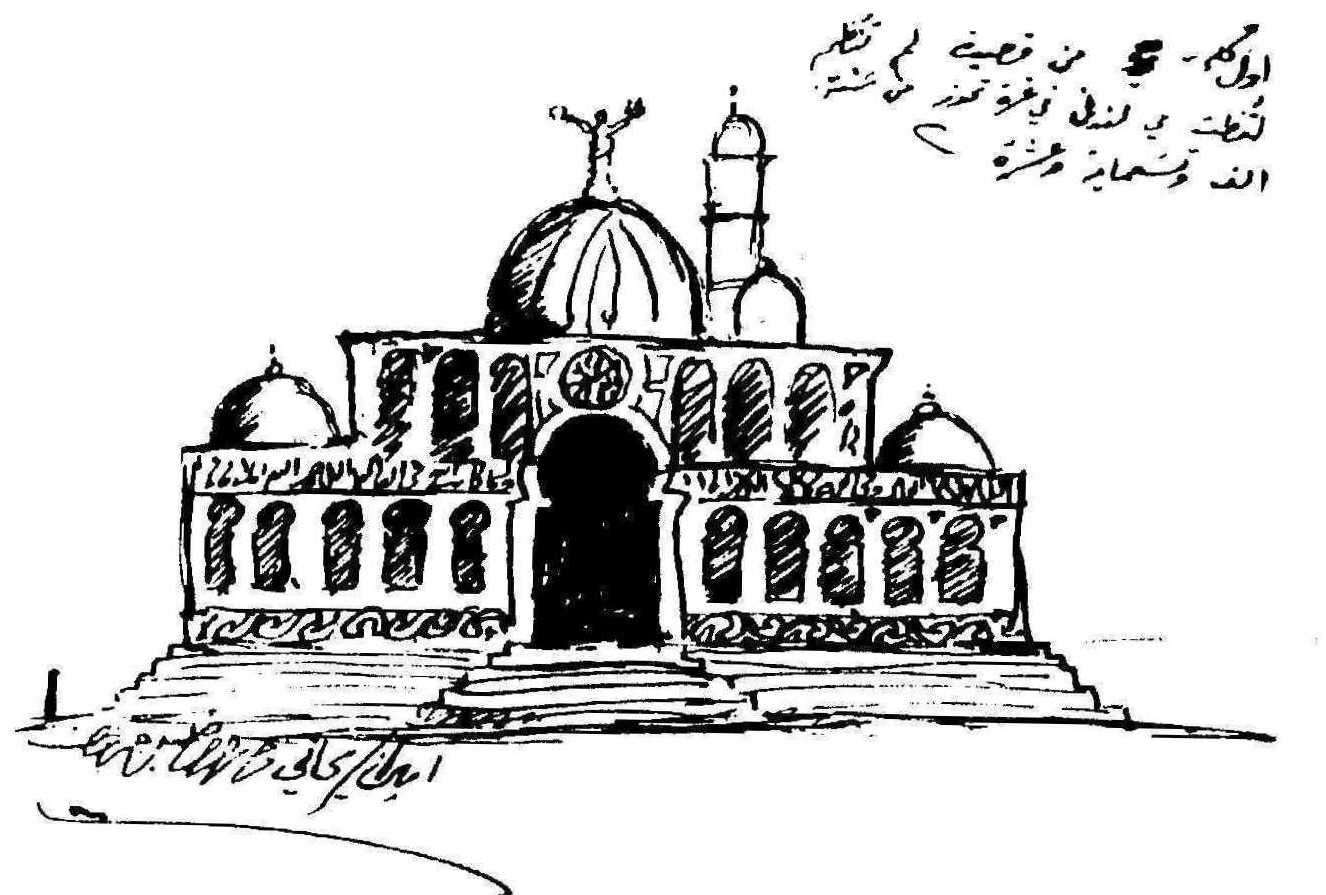 They drew up rough plans for the opera house, the outstanding feature of which was to be two domes symbolising the reconciliation of Christianity and Islam. Half-church and half-mosque, the opera house sketch was intended to represent the marriage of the essential values of the two world religions in a harmonious and unified whole, where each constituent complemented and balanced the other, drawing on a shared Arab mystic heritage.
They drew up rough plans for the opera house, the outstanding feature of which was to be two domes symbolising the reconciliation of Christianity and Islam. Half-church and half-mosque, the opera house sketch was intended to represent the marriage of the essential values of the two world religions in a harmonious and unified whole, where each constituent complemented and balanced the other, drawing on a shared Arab mystic heritage.
At the end of June, the group of friends split: Huwayyik left for Italy, Gibran and Rihani set off for England. It was Rihani who invited Gibran to accompany him to London. In fact, Rihani aimed at proposing his Wajdah, a play in four acts written in English, for a staging there. The two Lebanese spent about a month in London, dividing their time between tourist attractions and the art galleries, including the Tate, where Gibran fell in love with the paintings of romanticist William Turner (1775–1851). Their concern with home rule for the people of Ottoman Syria led them to Thomas Power O’Connor (1848–1929), the Irish nationalist leader, with whom they discussed the parallels between the Irish and Syrian struggles for liberation. Through O'Connor they were able to visit the Houses of Parliament and Windsor Castle. On July 24, as soon as he returned to Paris, Gibran sent a letter to his friend and patroness Mary Elizabeth Haskell (1873–1964), living in Boston, to tell her about his stay in England:
It took me thirty days to see and study the great treasures of London and now I feel thirty years older – in the spirit – and my vision of art is wider and clearer. And I met so many good people—people of noble minds and beautiful soul. Mr. T.P. O'Connor, the great Irish leader, was good enough to take us, my Syrian friend [Rihani] and I, into both Houses of the Parliament, and he also gave me permission to see many royal places which are not open to the public. Major Welap, a rich, religious gentleman who has been a good friend to me since I came to Paris, took us to Windsor, and we were permitted, through a courtesy extended to him, to see all the treasures of the wonderful Castle. And the Baroness de Bertouch, a noble poetess, invited us to the "Costume Dinner and Recital" at the Poetry Society, of which she is the founder, and of course we went in Arabic costumes. Most of the poets and artists of England were there, and I was so glad to meet them and to talk to them.
(The Letters of Kahlil Gibran and Mary Haskell. Visions of Life as Expressed by the Author of "The Prophet", arranged and edited by Annie Salem Otto, Houston: Smith & Company Compositors – Southern Printing Company, 1970, p. 47)
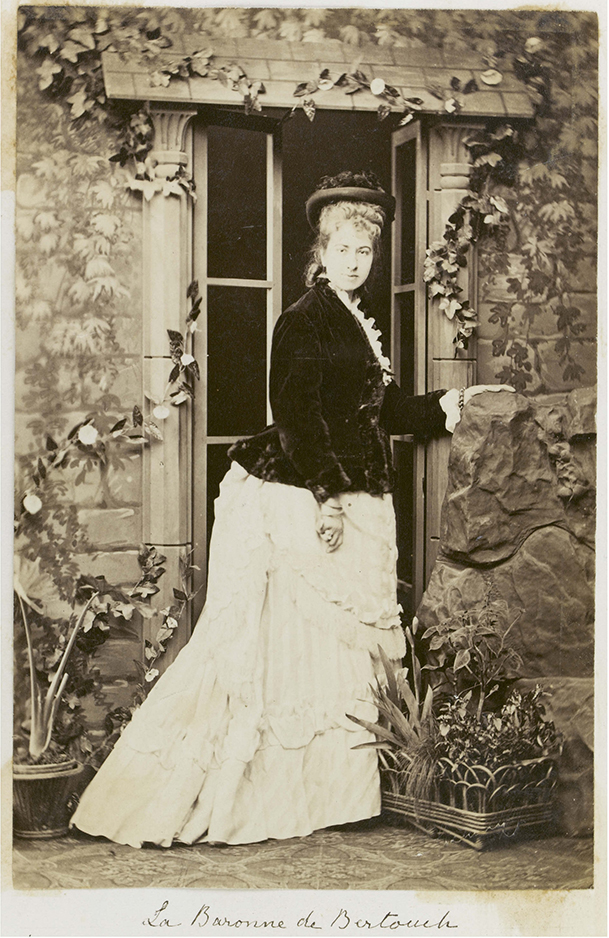 The Poetry Society was founded in London in 1909 with the stated aim "to promote the study, use and enjoyment of poetry." The Baroness Beatrice de Bertouch (1884–1931), journalist and writer, was among the founders of the organisation. The circumstance of the participation of Gibran and Rihani in such a "Costume Dinner and Recital," both proudly dressed up in Arab attire for the occasion, undoubtedly represents one of the most curious episodes of their biographies, and also one of the less documented. It is extremely difficult to state the precise date of the event, but an article entitled Poetical Characters at Dinner published on November 5, 1910, on The Poetical Gazette contains detailed information about the place, the organisers and the guests of the initiative:
The Poetry Society was founded in London in 1909 with the stated aim "to promote the study, use and enjoyment of poetry." The Baroness Beatrice de Bertouch (1884–1931), journalist and writer, was among the founders of the organisation. The circumstance of the participation of Gibran and Rihani in such a "Costume Dinner and Recital," both proudly dressed up in Arab attire for the occasion, undoubtedly represents one of the most curious episodes of their biographies, and also one of the less documented. It is extremely difficult to state the precise date of the event, but an article entitled Poetical Characters at Dinner published on November 5, 1910, on The Poetical Gazette contains detailed information about the place, the organisers and the guests of the initiative:
The costume dinner and recital promoted by the Baroness de Bertouch, in aid of the fund of the Society, was a distinctive and charming affair, and the spectators who watched the masqueraders from the gallery of the King's Hall of the Holborn Restaurant were highly delighted with the entertainment provided for them. The thanks of the Society are due to the Baroness and the members of the Kensington Centre for their efforts, and to Mademoiselle Caroli, Rangiuia, the Maori chief, Miss Elsie Machen, Mr. Robert Stephenson, Mr. Julian Gade, and Mr. Reginald Clark for their contributions to an admirable programme. Under the title of 'Playing Poets,' the Daily Telegraph gave the following descriptive report: "Titania, or it may have been Queen Mab, sold you a programme, and was careful about the change. Thus you felt at once the poetic atmosphere. Coming upstairs you stumbled over Byron into Homer. For this was the 'Pageant of Poetry' contrived by the Poetry Society at the Holborn Restaurant, and of persons enumerated on Titania's programme only one, the chairman, Sir Alfred Turner, was allowed to be merely himself. The rest appeared in the guise of characters out of all the poets and novelists, from Shakespeare to Mr. G.R. Sims. The poets themselves, indeed, were scarce, but Lord Byron appeared with a retinue, which included Lady Byron and his sister, and even the Countess Guiccioli, so that he may be counted a host in himself. For the rest, there was D'Artagnan beside a Puritan maid out of Longfellow, a conjunction which one cannot believe to the taste of that dashing mousquetaire. There was Juliet with Sir Walter Ralegh, which seems a much more promising association. Fra Lippo Lippi was beside the Blessed Damozel, and Petruchio with Tennyson’s grandmother. There was a Cleopatra or two and a company of Greek gods and goddesses, and Sohrab and Sohrab's mother, and a group of Tennyson's 'Fair Women,' and the sight was gorgeous to behold. So the members of the Poetry Society sat down to dinner. And 'after they had put from them the desire of eating and drinking,' as Homer remarked, Sir Alfred Turner gave the toast of 'Poetry,' and spoke of the value thereof and of the Poetry Society. Then there were recitations and songs and dances." Certain supplementary details, published in the Aberdeen Free Press, may be added: 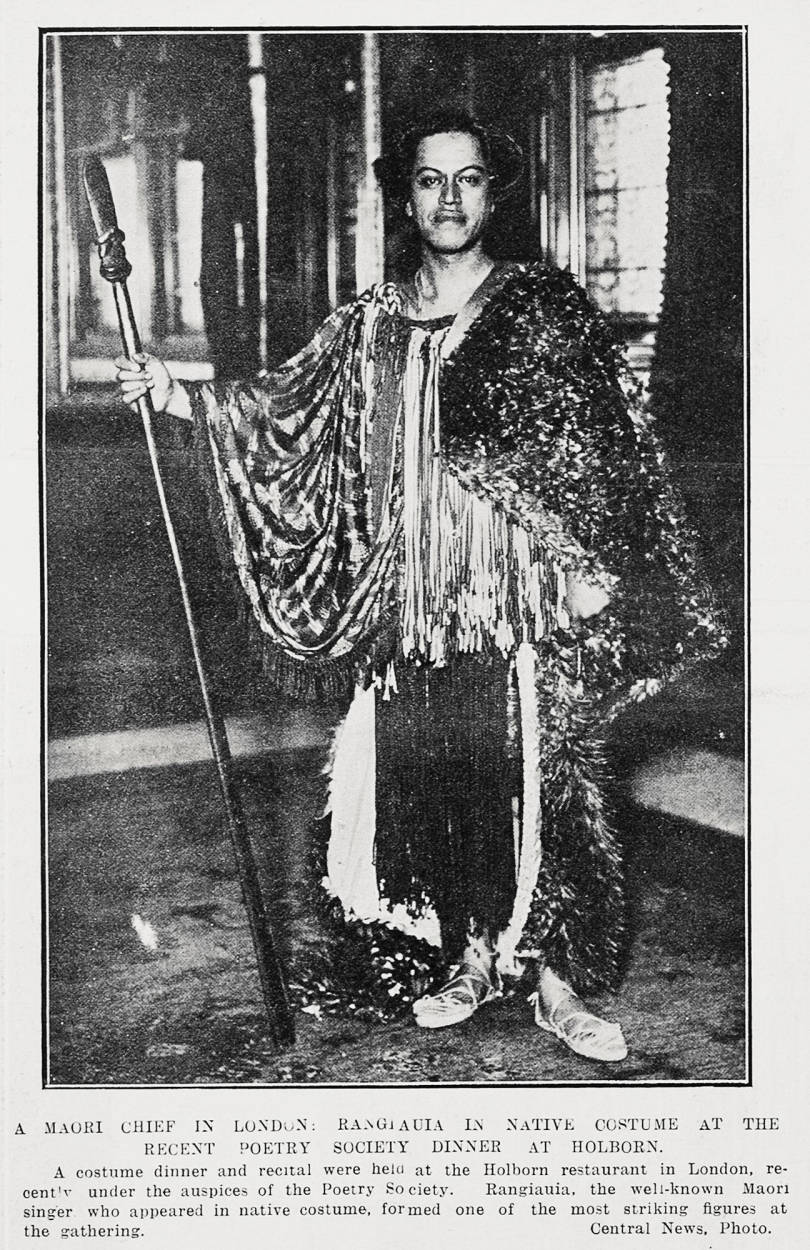 "Baroness de Bertouch, as the Spirit of Poetry, received the guests, who assembled to the number of about 120, in the reception-room of the King's Hall, where they made picturesque, though in some degree incongruous, groups, the creations of Homer making the acquaintance of those of Shakespeare, while men and women of Byron, Rossetti, Moore, Longfellow, and Tennyson met on familiar terms. The diversified character of the throng was further emphasised by the presence of a real Maori chief in native robes and two Moorish gentlemen in characteristic attire, while two charming little girls personified fairies and distributed programmes. The dresses were designed with much taste and with a commendable regard for historical accuracy. The enjoyment of social intercourse among this brilliant but strangely assorted assemblage was suddenly interrupted by a bugle call, which was the signal for the guests to arrange themselves into ordered groups, each of which represented a particular poet, and thus organised they marched in to dinner, led by Major-General Sir Alfred Turner, the chairman, who wore modern evening dress. Sir Alfred in giving the toast 'Poetry,' confessed that when he was young he had tried to write poetry himself, but it had been a dismal failure. He thought that the function of poetry had never been better described than by the poet Coleridge in saying that it gave the habit of wishing to discover the good and the beautiful in all things. The Society, he added, was not very old, but it had done good work, and he regarded that occasion as a good augury of its lasting success."
"Baroness de Bertouch, as the Spirit of Poetry, received the guests, who assembled to the number of about 120, in the reception-room of the King's Hall, where they made picturesque, though in some degree incongruous, groups, the creations of Homer making the acquaintance of those of Shakespeare, while men and women of Byron, Rossetti, Moore, Longfellow, and Tennyson met on familiar terms. The diversified character of the throng was further emphasised by the presence of a real Maori chief in native robes and two Moorish gentlemen in characteristic attire, while two charming little girls personified fairies and distributed programmes. The dresses were designed with much taste and with a commendable regard for historical accuracy. The enjoyment of social intercourse among this brilliant but strangely assorted assemblage was suddenly interrupted by a bugle call, which was the signal for the guests to arrange themselves into ordered groups, each of which represented a particular poet, and thus organised they marched in to dinner, led by Major-General Sir Alfred Turner, the chairman, who wore modern evening dress. Sir Alfred in giving the toast 'Poetry,' confessed that when he was young he had tried to write poetry himself, but it had been a dismal failure. He thought that the function of poetry had never been better described than by the poet Coleridge in saying that it gave the habit of wishing to discover the good and the beautiful in all things. The Society, he added, was not very old, but it had done good work, and he regarded that occasion as a good augury of its lasting success."
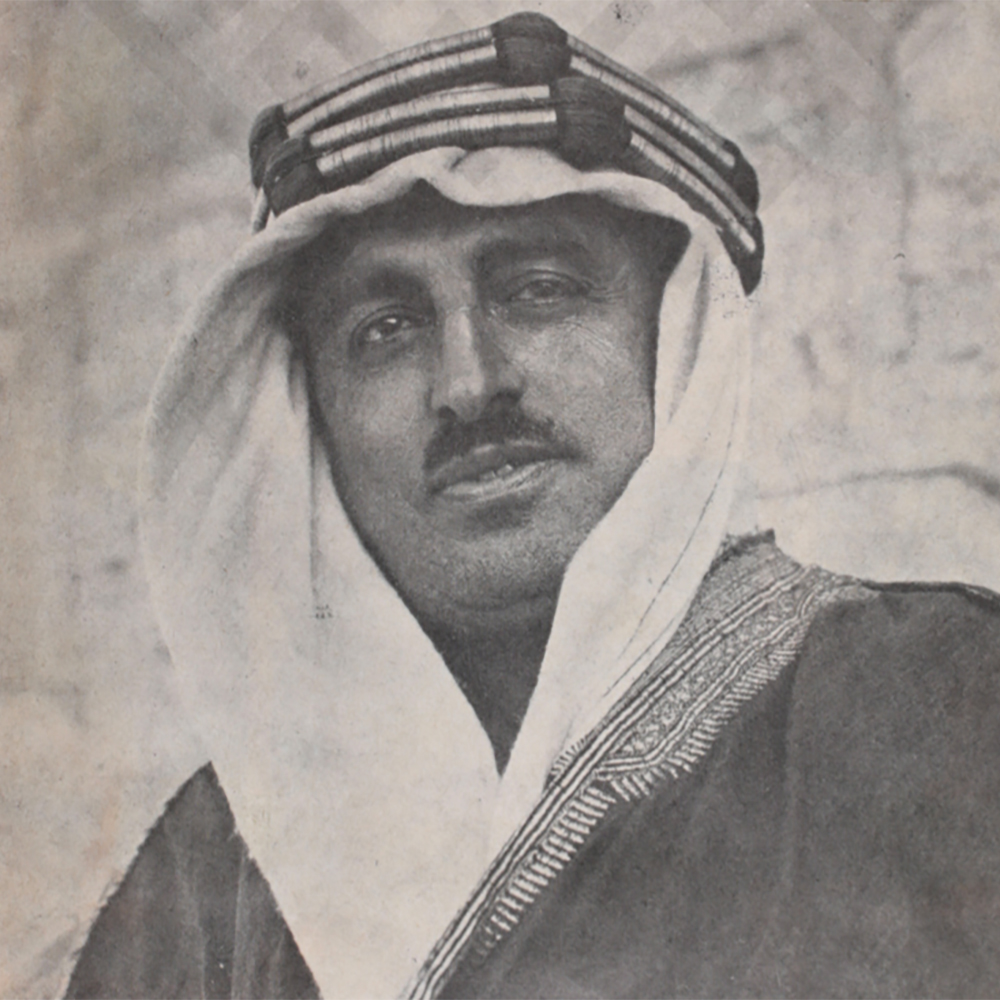
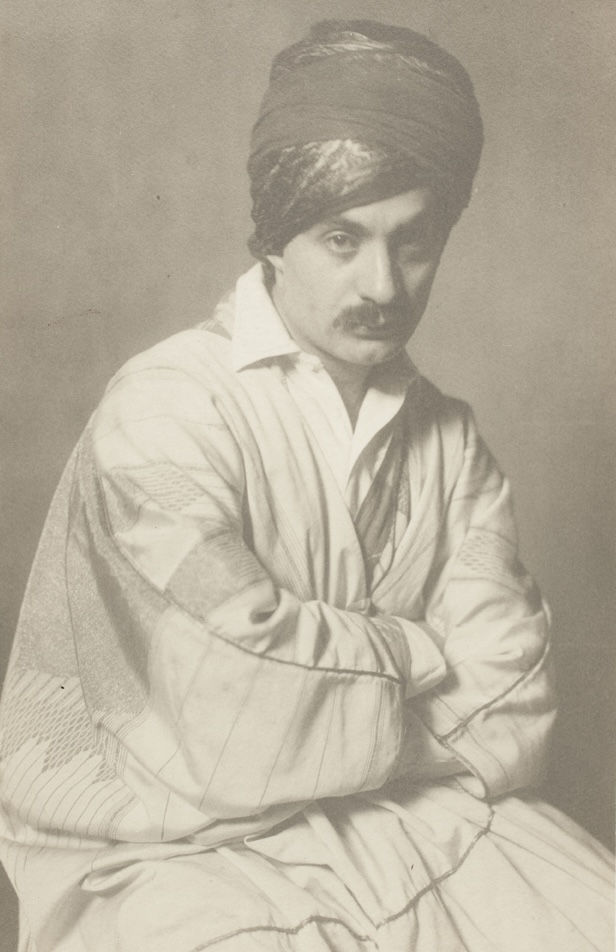 The "two Moorish gentlemen in characteristic attire" were surely Gibran and Rihani. Unfortunately, the authors of this piece could not find pictures of the dinner, except that of Rangiuia (or Rangiauia), the Maori chief. Nevertheless, it seems Gibran and Rihani's magnificent costumes and sparkling personalities were particularly appreciated, to the point that they both received a crown as a special prize of the night. Gibran's crown is believed to be part of the collections kept in the Gibran Museum, formerly the Monastery of Mar Sarkis, in Bsharri, Lebanon.
The "two Moorish gentlemen in characteristic attire" were surely Gibran and Rihani. Unfortunately, the authors of this piece could not find pictures of the dinner, except that of Rangiuia (or Rangiauia), the Maori chief. Nevertheless, it seems Gibran and Rihani's magnificent costumes and sparkling personalities were particularly appreciated, to the point that they both received a crown as a special prize of the night. Gibran's crown is believed to be part of the collections kept in the Gibran Museum, formerly the Monastery of Mar Sarkis, in Bsharri, Lebanon.